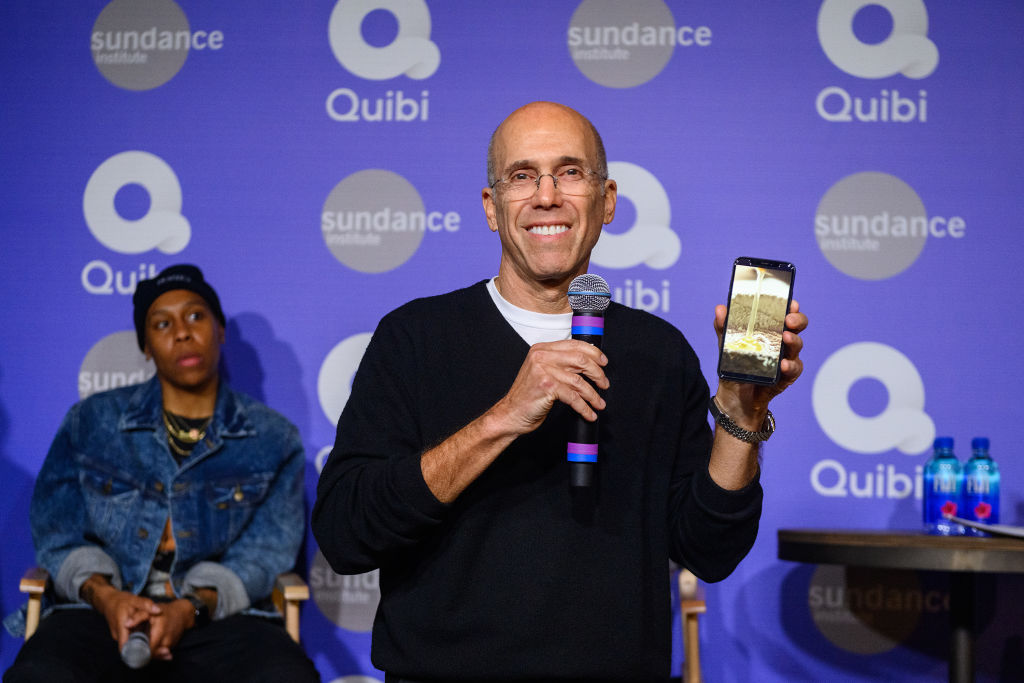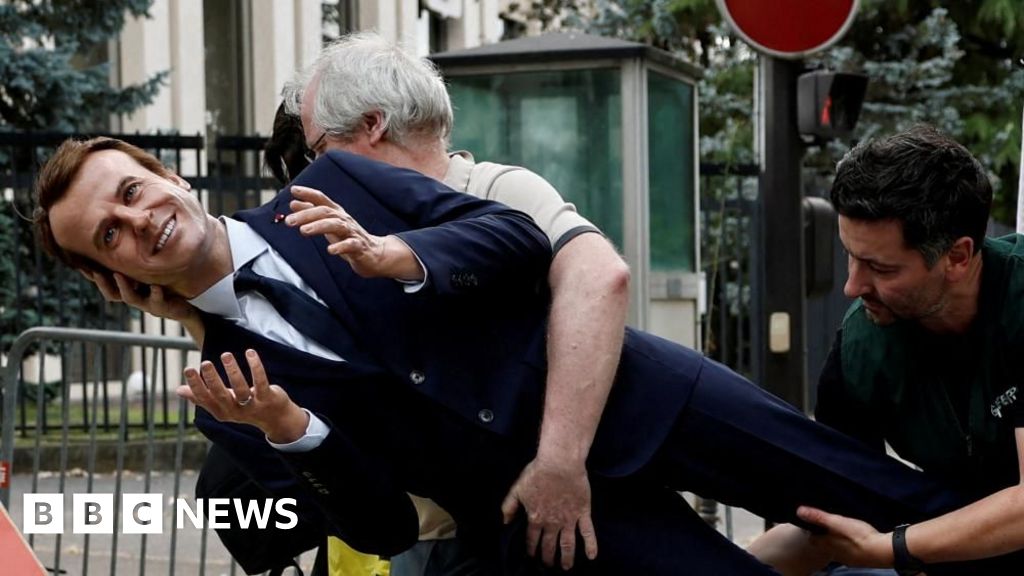Unease at F.B.I. Intensifies as Patel Ousts Top Officials

Before being confirmed as the director of the F.B.I., Kash Patel made clear his intent to remake it in his own image, reflecting a larger desire by the White House to bend the agency to its will.
“The F.B.I. has become so thoroughly compromised that it will remain a threat to the people unless drastic measures are taken,” he wrote in his book “Government Gangsters,” asserting that the top ranks of the bureau should be eliminated.
Behind the scenes, his vision of an F.B.I. under President Trump is quietly taking shape. Agents have been forced out. Others have been demoted or put on leave with no explanation. And in an effort to hunt down the sources of news leaks, Mr. Patel is forcing employees to take polygraph tests.
Taken together, the moves are causing worrisome upheaval at the F.B.I., eliciting fear and uncertainty as Mr. Patel and his deputy, Dan Bongino, quickly restock senior ranks with agents and turn the agency’s attention to immigration. Their persistent claims that the bureau was politicized under previous directors, in addition to their swift actions against colleagues, have left employees to wonder whether they, too, will be ousted, either because they worked on an investigation vilified by Trump supporters or had ties to the previous administration.
The actions have obliterated decades of experience in national security and criminal matters at the F.B.I. and raised questions about whether the agents taking over such critical posts have the institutional knowledge to pursue cornerstones of its work.

“The director and I will have most of our incoming reform teams in place by next week,” Mr. Bongino wrote on social media last week. “The hiring process can take a little bit of time, but we are approaching that finish line. This will help us both in doubling down on our reform agenda.”
He added that the agency would revisit past investigations, like the 2022 leak of a draft Supreme Court opinion on abortion, cocaine found two years ago at the White House and the pipe bombs found near the Capitol on Jan. 6, 2021. (Two of the cases were not the F.B.I.’s to start — the Secret Service investigated the cocaine and the Supreme Court marshal the leak of the draft opinion.)
“The director and I evaluated a number of cases of potential public corruption that, understandably, have garnered public interest,” Mr. Bongino said, oddly referring to the pipe bombs as a potential act of public corruption rather than domestic terrorism. In his previous role as a podcast host, he insisted, without offering evidence, that the pipe bombs were “an inside job” and that “the F.B.I. knows who this person is.”
The F.B.I. typically does not talk about investigations, and Mr. Bongino’s statement did little to dispel perceptions that he and Mr. Patel are eager to rehash years-old right-wing grievances by revisiting episodes that have angered conservatives aligned with the president. Their actions have fueled the same criticism they leveled at the bureau under the Biden administration: that the F.B.I. is becoming weaponized.
This article is based on interviews with nearly a dozen current and former law enforcement officials who spoke on the condition of anonymity for fear of retaliation. The F.B.I., which typically does not respond to questions involving personnel, did not provide comment.
Former and current F.B.I. officials warned that the attempts by Trump loyalists to mold the bureau to their worldview could ultimately have a chilling effect on agents seeking to open cases that could upset Mr. Trump or his base. They added that they viewed many of the personnel moves as retribution.
Mr. Patel and Mr. Bongino have sent a clear message on previous F.B.I. investigations that focused on Mr. Trump or his allies. In essence, former officials said, nobody is above the law except Mr. Trump.
In recent weeks, the F.B.I. disbanded the Washington field office’s elite federal public corruption squad, which was best known for investigating Mr. Trump’s efforts to overturn the 2020 election, among other sensitive inquiries involving prominent government officials.
The move, former and current agents say, suggests that investigations involving Mr. Trump could be out of bounds. Those extend to inquiries that might ensnare senior Trump officials who used the Signal messaging app to discuss highly sensitive details of military strikes on Yemen in advance. The platform is not an approved, secure means of communicating sensitive national defense information.
When new leaders take office, they inevitably want to put their own stamp on an agency. But some departures amount to a significant loss in expertise, including the abrupt retirement of an official running an office established in 2020 to uncover and reduce the risk of misuse of national security surveillance, arguably one of the bureau’s most important intelligence gathering tools. Others, including a recent round of forced retirements and transfers, veer from traditional processes, former officials said.
The bureau’s web page detailing the agency’s leadership roles is in disarray, with employees who have left still listed as working there.
Mr. Patel has put other officials on administrative leave with pay, including two men who dealt with issues related to Hunter Biden’s laptop, which Republicans have long insisted shows evidence of politicalization. One of the men had already been disciplined for his work examining ties between Mr. Trump’s 2016 campaign and Russia before Mr. Patel took over as director.
“Anyone out there who thinks we have not taken appropriate action against political actors, you — they’re just making that up,” Mr. Bongino said on “Fox and Friends” last week. “We can’t go out and advertise this stuff.”
Addressing the broader challenge of overseeing the bureau, Mr. Bongino described the demands of making “big, bold changes.” “Part of you dies a little bit when you still see all this stuff from behind the scenes.”
One F.B.I. lawyer was removed from a key job overseeing human resources and notified while on medical leave. Others have been forced out of jobs, typically with no explanation. A succession of top agents, all women, were given an ultimatum: Take a different post or be asked to retire.
A senior agent, who was until April in charge of intelligence at the Los Angeles field office, was asked to relocate to the F.B.I.’s campus in Huntsville, Ala., where former officials said she would take on fewer responsibilities — or to retire.
Similar scenarios have played out in San Diego; St. Louis; Jacksonville, Fla.; and in Birmingham and Mobile, Ala.; as well as the Washington field office.
In at least some cases, people were told to go because they held their positions at the director’s discretion.
It is not clear how Mr. Patel is reaching these decisions, but former F.B.I. officials say such removals would typically be set off by conduct that warranted being investigated or adjudicated, like a bad inspection or reports of misconduct. Under previous directors, special agents in charge, who typically lead field offices, were rarely removed. By one estimate, more than a half dozen were asked to transfer or face a demotion.
Another wave of agents has been promoted to fill major jobs at headquarters and run field offices around the country, including St. Louis, Newark, Phoenix, Indianapolis and San Diego. Former officials praised some of the choices while they viewed others as less inspiring.
To help fill those roles, Mr. Patel has made exceptions, elevating assistant special agents in charge to the top spot at field offices. Such agents have not ascended to lead a section at headquarters — long considered the requisite to become a top agent in the field. In another unusual instance, he brought back a retired senior agent to oversee the counterterrorism division, which is typically stocked with a deep bench of veterans qualified to run it.
Other agents and at least one top analyst have retired rather than risk being targeted by F.B.I. leadership for causes embraced by conservative critics of the bureau.
Testifying before senators about his agency’s budget request in recent weeks, Mr. Patel said retirements were routine but did not affect the F.B.I.
“The good news is from the folks that I’ve met in the bureau, we’ve been able to retain significant levels of senior leadership both in Washington and throughout the country,” he said.
The F.B.I.’s increasingly pervasive use of the polygraph, or a lie-detector test, has only intensified a culture of intimidation. Mr. Patel has wielded the polygraph to keep agents or other employees from discussing a number of topics, including his decision-making or internal moves. Former agents say he is doing so in ways not typically seen in the F.B.I. Even though it is not admissible in court, a polygraph can be a powerful tool in supporting a criminal investigation or serious allegations of misconduct.
Jim Stern, who conducted hundreds of polygraphs while an F.B.I. agent, said he used the tool in criminal and counterintelligence investigations and on applicants and security issues. Mr. Stern said that if someone violated policy, the F.B.I. could polygraph them. But if an agent who legitimately talked to the news media in a previous role had to take one, he said, “that’s going to be an issue.”
“I never used them to suss out gossip,” he said.
At a recent meeting, senior executives were told that the news leaks were increasing in priority — even though they do not involve open cases or the disclosure of classified information. Former officials say senior executives, among others, were being polygraphed at a “rapid rate.”
In May, one senior official was forced out, at least in part because he had not disclosed to Mr. Patel that his wife had taken a knee during demonstrations protesting police violence in the District of Columbia in 2020. The veteran agent retired, but not before passing a polygraph as part of Mr. Patel’s efforts to stanch leaks.
He quickly found a job in the private sector.
Kitty Bennett contributed research.
What's Your Reaction?
 Like
0
Like
0
 Dislike
0
Dislike
0
 Love
0
Love
0
 Funny
0
Funny
0
 Angry
0
Angry
0
 Sad
0
Sad
0
 Wow
0
Wow
0








































